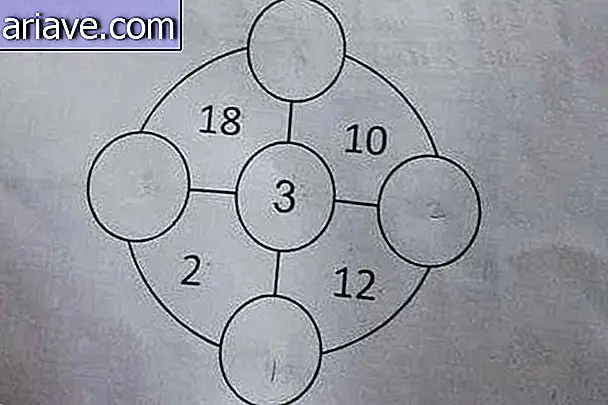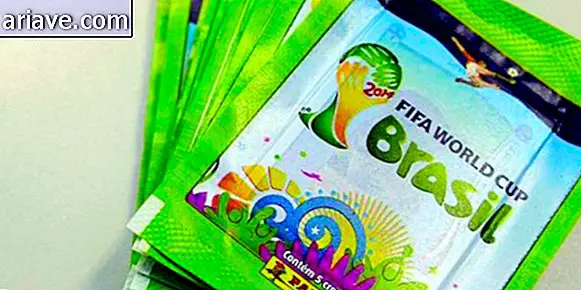Do you know the origin of the OK expression?
"Let's combine something, OK?" "If you're OK with that, we can start." There are several ways to use the well-known OK (or OK), and you probably use this expression a lot, which is very common in English-speaking countries and has been incorporated into our vocabulary.
And did you know that the famous OK is completing 175 years of existence? True, it is strange to have such a specific number for the birth of a word, but linguists have reached that date because of their first printed publication - which is, more precisely, on March 23rd.
To pay tribute to this expression, the folks at Mother Nature Network decided to tell a little of the story of how it might have come about. According to them, the word "OK" is one of America's most popular cultural exports, uniting different meanings in just two letters in a versatile way.
All right
The expression OK has almost as many origin stories as connotations, but linguists generally agree that the expression was first published on March 23, 1839 in a Boston newspaper. But where did she come from? Well, thanks to American etymologist Allen Walker Read, you can get an idea about this.

After thorough research into the history of OK, Allen published his findings in the American Speech magazine in 1963 and 1964, following the trajectory of the term since March 23, 1839. Allen briefly considered that OK was short for the expression. “Oll korrect”, spelled incorrectly in the English language and meant “all correct” - in Portuguese “all right”.
However, this form needs a historical context to make more sense. In the late 1830s, slang crazes began among educated youth in Boston and New York to make fun acronyms (which should not be taken seriously) with deliberate misspellings of common phrases.
This led to abbreviations like NC for "enough said" (spelled incorrectly on purpose "nuff ced"), among other acronyms.
Another theory
This first use of OK in the Morning Herald Boston is considered the first printed appearance of the word, as you can see in the image above. After that, the acronym became even more popular as 1840 was an election year in the United States and the then-president (Martin Van Burren) was renamed "Old Kinderhook" due to his birthplace in the city. from Kinderhook, NY.
Hoping to capitalize on this coincidence, supporters of Van Buren's Democratic Party formed the OK Club to promote it before the election, according to Oxford University Press. But even with OK's popularity, Van Burren was not reelected, but the acronym remained in the memory of the American people.

The winner who beat Burren, Whig William Henry Harrison, also took advantage of OK to mock his rival's campaign, insulting him as "out of cash" and "orful katastrophe" (awful catastrophe) catastrophe).
In fact, the expression that may even have been the real winner in 1840. However, it still took a while for it to become the "biggest word in America, " a title bestowed by author Allan Metcalf in his book on OK, which it was published in 2010. All because a lot of people didn't look at her kindly.
The greatest writers of the 19th century, including Mark Twain, dodged the acronym, according to Metcalf, giving it little literary legitimacy. This situation changed when a variant of OK was used in 1918 by Woodrow Wilson, the only US president with a doctorate.
Versatility
Much of OK's success can be attributed to its brevity and flexibility. For example, the acronym can be used to quickly complete an approval of a document or account. OK also grants permission (“For me, OK”) as well as status or security ("are you OK?") Or terminating an action or changing the subject ("OK, what's next?").
OK can even imply mediocrity or disappointment ("the party was OK ..."). Of course, all forms of use are more common in English-speaking countries, but some of them are widely used in Brazil and other nations.
Alternative Sources

The quotation of OK in the Boston newspaper is taken as the first recorded. However, it is impossible to rule out alternative sources. One of them says that the expression came from Scottish och aye (something like "yes indeed"), while another hypothesis says that it came from the Greek oka kala ("everything is good"). Theories still include the expressions oikea ("correct" in Finnish) or the Mandarin African language O ke ("certainly").
To complicate matters a little bit, OK won the newer spelled variant “okay”. However, its most famous source version, which you have probably seen out there, is one that says OK was the acronym for “0 Killed”, an abbreviation of “zero killed” in reports. of battlefields.
Having no casualties among the soldiers with no war dead was a very good thing, and over time the expression became synonymous that everything was right.
In gestures, in the United States, OK is done by joining the thumb and forefinger with the other three raised fingers. However, here in Brazil we have to be careful with this form, because it also means something else ... But it is possible to pass the expression to an American (or English, Australian, Canadian etc) with our famous "thumbs up", OK?











